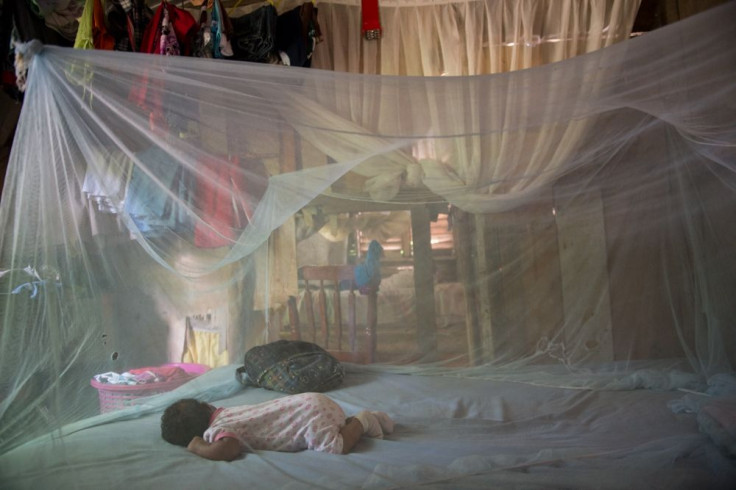Defeating Chikungunya Virus: Scientists Develop New Antibodies To Fight Mosquito-Borne Disease

The chikungunya virus is a painful disease transmitted through the bite of infected mosquitos, and there's currently no treatment or cure. Now, scientists believe they’ve made a major step toward defeating the virus. Published in the journal Cell Host and Microbe, the study dictates a large panel of antibody treatments against chikungunya.
Two years ago, the research team began obtaining blood from people who had been infected with chikungunya virus as children. They searched the blood for B-cells that secreted chikungunya antibodies, isolated them, then took their DNA and antibody genes. Using a “needle in the haystack” technology developed at Vanderbilt, the researchers were able to take these B-cells out of the blood and use them to make antibody drugs.
“Amazingly even decades after an infection, people still have cells in their blood making antibodies for chikungunya,” Dr. James Crowe, Ann Scott Carell professor and director of the Vanderbilt Vaccine Center at Vanderbilt University Medical Center, said in the press release.
The virus spreads in an interesting way: typically, humans are infected after a mosquito containing the virus bites them. Humans can transmit the virus only through mosquitos; they can’t pass it on from person to person. A non-infected mosquito can contract it by biting an infected human, then pass it along to another human, and so on.
The disease was discovered in southern Tanzania in 1952, and its name is derived from a word in the Kimakonde language, which means “to become contorted” due to its symptoms of joint pain. Other symptoms include fever, headache, and rashes. Most of the outbreaks have occurred in Africa, Asia, and Europe — but there have been 177 cases of the disease in the U.S. after the virus arrived in the Caribbean in 2013.
Because of the close ties between the U.S. and the Caribbean, researchers are preparing for a potential outbreak here — and it’s why Crowe and his team are hoping to get the ball rolling on their drug.
“There are about one million people who travel to the Caribbean and back in the U.S. each year,” Crowe said in the press release. “If you go to Haiti on a mission trip, there’s a very high chance you’ll be infected with chikungunya if you are in an infected area.”
The researchers hope that their antibody drug will be able to be tested in humans within a year.
“It’s frustrating, because the outbreak is ongoing now,” Crowe said in the press release. “I wish we had the drug ready to test in humans now, but you need to be careful and prepare these materials correctly. It takes a long time to manufacture and test and prove that materials are safe for humans.”
Source: Smith S, Silva L, Fox J, Flyak A, Kose N, Sapparapu G. Isolation and Characterization of Broad and Ultrapotent Human Monoclonal Antibodies with Therapeutic Activity against Chikungunya Virus. Cell Host & Microbe, 2015.



























